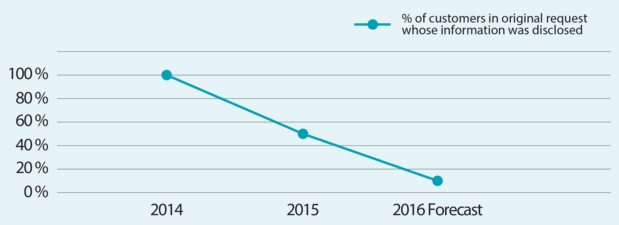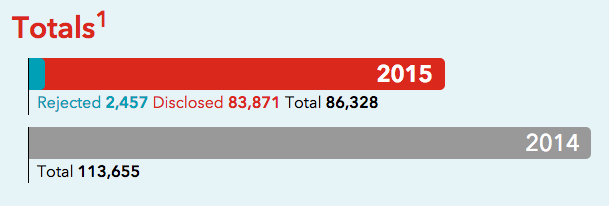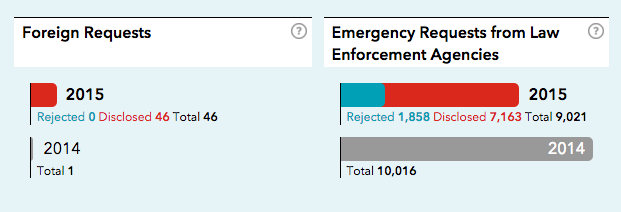
In a year in which it won a landmark case that put limitations on so-called “Tower Dump” information requests, Rogers’ third annual transparency report broadcasts a clear message: the company wants to be seen as a privacy champion.
Rogers highlights the January 2016 court ruling R. v. Rogers Communications multiple times throughout the report. The case regarded a 2014 police request for all data from a single operating tower that would have led to Rogers disclosing information involving over 30,000 customers. Rogers fought the order along with Telus, which was also facing a “Tower Dump” request that would’ve involved approximately 10,000 of its customers. Together, the two companies took the case to Ontario’s Superior Court of Justice and won.
The company states in the report: “If we consider an order to be too broad, we push back and, if necessary, go to court to contest the request,” adding that in this instance, “We’re glad the court agreed and set ground rules for the scope of what law enforcement agencies are able to request and access.”
In addition, Rogers says it has taken further steps to limit the scope of “Tower Dump” requests by employing a system, mid-2015, of providing only phone numbers at first, with no corresponding names and addresses, then providing further information if it receives a subsequently narrowed request.
In an effort to make the data more transparent than the previous two years’ editions, Rogers has also broken out the number of times it disclosed information and did not provide information (whether by refusal or simply because it had no information to provide) for each type of request.
The data it provides shows there was an overall total of 86,328 requests made in 2015, which is significantly less than 113,655 requests made in 2014. Of those requests, 83,871 were disclosed, and 2,457 fell under the category of being rejected or of Rogers being unable to provide information.
Some of the most interesting numbers that can be gleaned from the information include the fact that 99.2 percent of court order/warrant requests (which include “Tower Dump” requests) were disclosed.
100 percent of government requirement letters, which are requests issued in accordance with legislation such as the Customs Act or Income Tax Act, were disclosed, and the same went for foreign requests, which are requests for information from government agencies outside of Canada. That number also saw a sudden spike from last year, with one request jumping to 46.
Emergency requests from law enforcement agencies, which are requests made in emergency situations without application to a judge, saw the highest rate of rejection from Rogers than the other categories, with 29.5 percent rejected.
In accordance with new suggested guidelines from Innovation, Science and Economic Development Canada, the telecom also added new categories to the report this year, relating to voluntary disclosures, which refer to information requests that are not backed up by a warrant or court order, or voluntary offers of information for the purpose of reporting crimes. Both categories stand at zero for Rogers.
Says the company: “We only give out private customer information when required by law (which includes emergencies) and after we have thoroughly vetted the request.”
The full report is available for perusal here.
Related reading: Rogers increases select monthly rate plans in Manitoba by $5
[source]Rogers[/source]
MobileSyrup may earn a commission from purchases made via our links, which helps fund the journalism we provide free on our website. These links do not influence our editorial content. Support us here.





